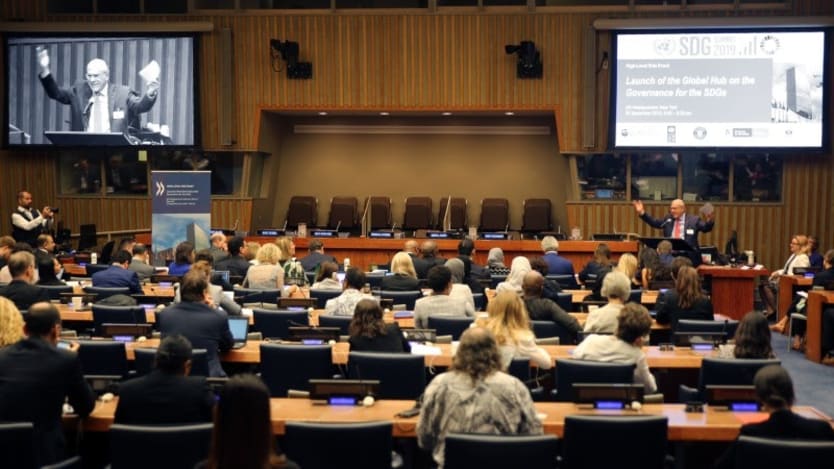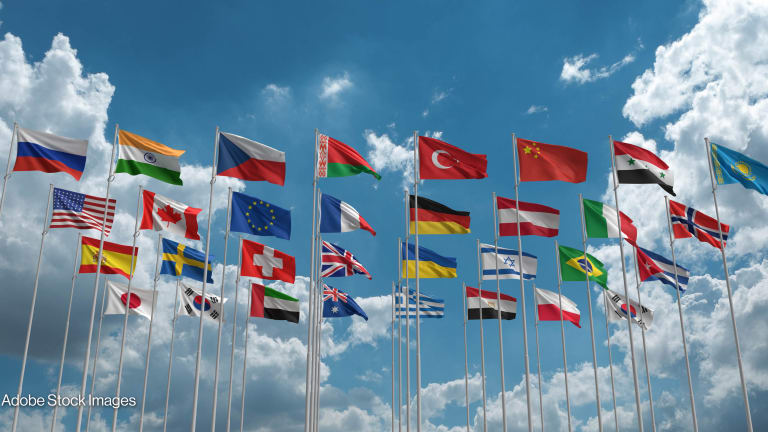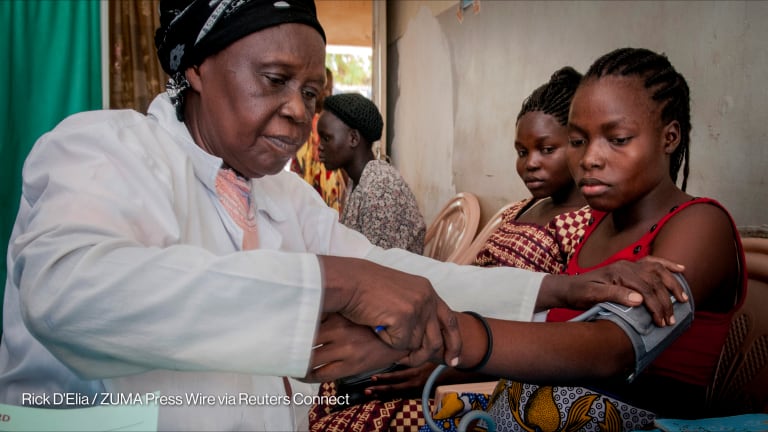Opinion: It always seems impossible until it's done

In April 2019, Jean-Paul Moatti, a member of the United Nations expert group evaluating progress on the Sustainable Development Goals, reported that progress on most SDGs has gone into reverse. U.N. Secretary-General António Guterres has also rung the alarm bell, underlining that “It is abundantly clear that a much deeper, faster and more ambitious response is needed to unleash the social and economic transformation needed to achieve our 2030 goals.”
The authors of the “Global Sustainable Development Report 2019,” published on Sept. 11 of last year, emphasize “that strong political will and commitment will be required to make the needed transformations.”
More from the authors:
► Podcast: Helen Clark on the need for more women in global dev leadership
► Global agendas set to fail unless something changes: Helen Clark
► Women's equality and inclusive peace need to move beyond talk
The question is: why is there insufficient progress on these crucial agendas? And what can be done?
Systemic change is needed
In-depth transformation to achieve the SDGs requires systemic change. And systemic change requires leadership committed to that. Citizens around the world are rejecting leadership that is failing to serve the common good effectively and is not creating an enabling environment in which they can flourish. From Algeria to Sudan, to Lebanon and Iraq, to Chile, Colombia, Iran, Georgia, and beyond, citizens have been protesting. Common themes revolve around concern over inequality, corruption, and poor public services. In some cases, fraudulent elections, human rights abuses, and overall repression are factors, too.
Unless systemic change takes place — both at the institutional level and in terms of quality political leadership — there is a substantial risk that we will continue to witness massive and justified disappointment of citizens.
We cannot overstate the huge challenges countries face in achieving the SDGs and in “leaving no one behind.” They range from ensuring peace and justice to fostering inclusive and sustainable socioeconomic development. This mission has become more complicated and urgent with digital and other innovations triggering disruptive change in economies and societies.
In countries with low institutional capacities, government ministers often lack the support they need to do their jobs well, despite the fact that they themselves may be technically well qualified. Leading a ministry to deliver a policy program can be exceptionally challenging, especially when the ministry itself lacks capacity.
Helen Clark on what is needed for real transformation
Transformation requires ministers to possess the knowledge, experience, and leadership skills that enable them to attend to the complex tasks at hand. Strong will and political commitment are important but insufficient in themselves. Where leaders commit to goals and don’t carry through, cynicism and distrust grow. That is corrosive for governance.
What is needed is capable and effective leadership for achieving the SDGs. Why are CEOs around the world trained, supported, and coached, yet government leaders and ministers with great responsibility and even more complex challenges are often left to cope relatively unaided? Effective and capable leaders need skills and good advisory systems.
Despite the urgency of accelerating progress on the SDGs, there is a lack of systematic, nonpartisan, and sustained efforts to support government leadership. It might be considered uncomfortable for leaders and ministers to express a need for help. In international meeting rooms, a good listener could pick up an indirect call for help from time to time, but invariably no plan for action follows. Often, governments or ministers in need do not know where to go nor whom they can trust. As a consequence, their needs can go unaddressed. Development partner institutions working on governance, such as the United Nations Development Programme, tend to focus their attention on improving the quality of public administration rather than on ministerial- and leader-level skills.
Thus, efforts directed at good governance have largely been restricted to civil servants and civil service capacity building. There has not been sufficient, systemic attention to building skills and capacity among those holding political office — yet they drive policymaking.
Business as usual vs. tackling the root of the problem
In a recent report, OECD wrote, “Delivering on the Sustainable Development Goals (SDGs) is a formidable governance challenge for countries at all levels of development.” In September at the U.N. General Assembly, it launched an initiative in partnership with UNDP — a Global Hub on the Governance for the SDGs. The hub would act as a clearinghouse and help desk for countries and their institutions to draw on as needed. But as well as focusing on capacitating civil servants, it should also take into account the need for support of government ministers.
In the full spirit of SDG 17, the hub should therefore make use of the complementary expertise, experience, and possibilities of compatible organizations such as Leadership4SDGs — from our perspective, an innovative initiative seeking to address the needs of government leaders and ministers for support.
The hub’s approach will be a test case of whether the international community will continue to do business as usual or, through partnership with other organizations, it is willing to invest in tackling important root causes of poverty, exclusion, and conflict. Improved governance and upskilled ministerial leadership is needed to drive policy change and implementation. If such support to empower and capacitate governments could be offered in a structured and systematic way, we believe that the SDGs would stand a better chance of being achieved.
Put simply, the 2030 Agenda is too important to fail. Business as usual is not an option; it guarantees failure. As the saying goes, electric light didn’t come from the continuous improvement of candles. If the world is to stand a chance of achieving the SDGs, new approaches are needed — and needed quickly. There’s no time to lose.
Search for articles
Most Read
- 1
- 2
- 3
- 4
- 5









